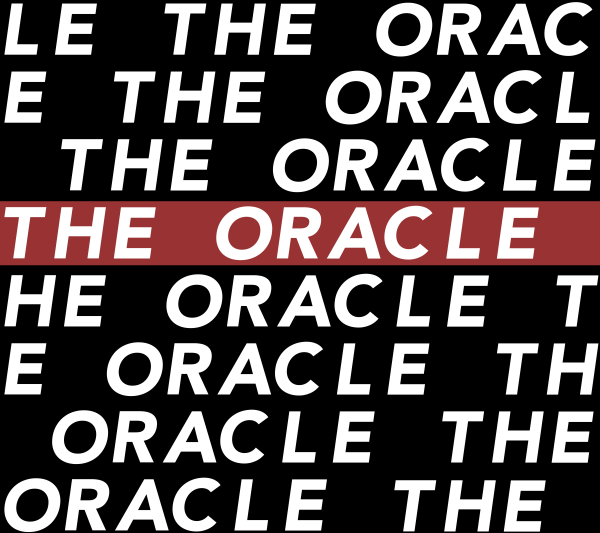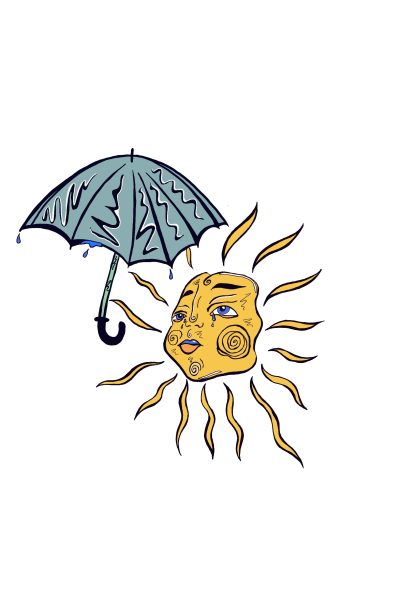Pundits lack punch of past voices
The current election cycle is missing a Hunter Thompson, and voters are worse off for it.
October 5, 2016
Spring was at its end when I committed to supplementing my political knowledge with more than just holographic headlines blazing across news channels. The presidential nominations were the cause, for the process wore me down as it seemed to do to most others based on my cursory discussions at the time. Who failed to notice the campus-wide deflation as the sea of Bernie Pipers fell to catatonic despair? It was clear by May’s end that the two presidential frontrunners were decided by all but official decree. This notion rammed disillusionment into my gut, so I decided to delve deeper into the process—to look back through history and learn if elections were commonly a choice between one of two evils.
This resolution brought me to “Fear and Loathing on the Campaign Trail ’72,” written by the esteemed late writer Hunter S. Thompson. Thompson, most popularly known for writing “Fear and Loathing in Las Vegas,” was a New Journalism giant of the late sixties and early seventies who revolutionized political journalism with “Campaign Trail.” He vehemently denied objectivity in journalism, insisting that all journalism is inherently subjective in that it portrays reality and events through its specific viewpoint. He used this creed with great literary success when he covered the brawl between Richard Nixon and George McGovern in ’72 for Rolling Stone Magazine, inserting himself within his narrative of events as the campaign progressed month by month. The resulting collection of his essays formed “Campaign Trail.”
The book was an instant hit. Frank Mankiewicz, George McGovern’s campaign director, called it the “least factual and most accurate” account of the election. Thompson demonstrated not only that American politics need not be described by the press in objective terms, but also that the chorus of pundits wailing through news outlets were complicit with politicians in trying to control the media’s narrative. This was Thompson’s great revelation, the implications of which are obvious and observable to this day, and political journalism has been marked by his skepticism ever since.
Thompson’s contemporary analog is Jon Stewart, by my reckoning. During his time on “The Daily Show,” Stewart fired shots at Democrats, Republicans, Fox News, CNN and any other entity he deemed guilty of propagating drivel to the masses. He criticized with characteristic wit and spot on comedic timing, just as Thompson utilized his own drug-fueled zaniness to humorous effect. But more importantly than humor, Stewart expressed outrage at egregious acts of incompetence, insensitivity and corruption. This outrage is the most important factor these men share: both Thompson and Stewart essentially portrayed the bewildered hero of a comic tragedy, in literature and television respectively.
Now Stewart is retired from his seat and Thompson is ten years deceased, and Stewart’s successors have not quite replicated his magic. Samantha Bee shoots mean-spirited barbs at conservatives, Trevor Noah gives an air of having no dog in the fight, Larry Wilmore’s show collapsed because of a terribly moderated format and John Oliver’s content is substantial, but falls just shy of true impact. Even Stephen Colbert, whose parodying of conservative pundits was on par with Stewart’s satire, has become just another grinning face in Letterman’s old slot, losing his intellectual bent and joining the league of easy-to-digest late night quipsters.
Maybe voices as insightful as Thompson’s only come once per generation, but I do not want to believe it. This election desperately needs another wry voice to discern truth from madness so that young people like me—in their first presidential election year and lacking the same fine-tuned political instinct—can cast their November vote in good conscience.
The usual pundits are nauseating and drown one another out with their shouting. You know their names from their self-important coverage: Sean Hannity, Rachel Maddow, Bill O’Reilly, Keith Olbermann. None of these clowns can match the intellect of two men who acted clownish to make a point, and it is an odd time indeed when peasants turn to jesters and poets for sensible political advice.





